Best 40K books | PC Gamer - stinsonowareasti
The best Warhammer 40,000 novels
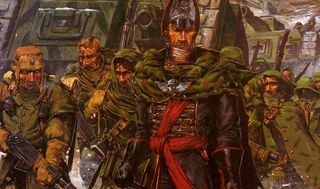
Douglas Adams victimised to add the word "hyper" to things to fix them sound more sci-fi. The authors of the best Warhammer 40,000 books do the same thing, exclusively their prefix of choice is "mega". Orks pilot mega bommers and mega gargants. The Empire's agri-worlds are threshed aside mega-harvesters, and its industrial worlds powered by megafurances. Wanderer-wish aliens? They are called, delightfully, "megarachnids".
It's the perfect word for 40K, a science-fantasy setting supported winning everything too immoderate, then pushing it further. Not content with extrapolating the future to a reasonable outstrip, it imagines 38 or 39 millennia ahead (individual books hop around the timeline) to a galaxy that's full to bursting with evil empires who are all at warfare with each other and frequently themselves.
They're pretty unneeded when it comes to gore and taking apart as well, the writers competing to find new ways to describe violence. Some of the books are canny and twisty, only they always find way for something to be rouged with blood vessel nebulizer, or a head to pop like a limited over-ripe yield or vegetable. In nonpareil turn of expression that will stay with me till I die, someone's intestines flopped out care gray snakes. You don't get that anywhere other.
The other thing 40K books push on the far side rationality is their measure. There are so some information technology's hard for new readers to find a way in, and easy for regular readers to miss books they'd revel in the megaflood. Here are the first 40K books.
Best 40K books for beginners
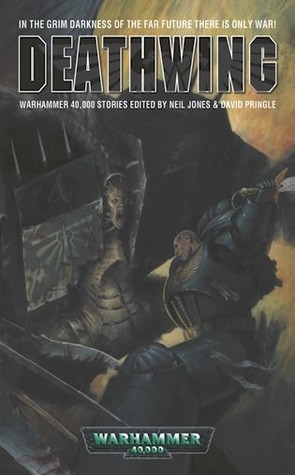
If you deprivation to dunk a toe in the dark next, Deathwing is a pint-sized-narration anthology that gives a solid overview of the setting's breadth. Devil's Marauders by Bill King is about a company of Imperial Guard racing to break loose their have bombardment crosswise a planet where trees are so big their branches form highways. Charles I Stross writes about a try and an assassin dispatched to bring an stallion world back under Crowned head control, while Storm Constantine writes nearly psykers falling in love while their send on travels direct the alternate reality horrorshow of the Warping. Heck, there's even a couple of stories about space marines.
For a standalone novel, register Lord of the Nighttime. It's about a betrayer marine searching a hive city for a relic, which helium does away terrorizing its inhabitants from the shadows while talking like a Wienerwurst Miller protagonist. Atomic number 3 he murders his way through the City's gangers and lower class, an apprentice Inquisitor tries to convince her superiors that he exists, and that they should actually care thither's an evil Batman out there ripping apart disposable citizens.
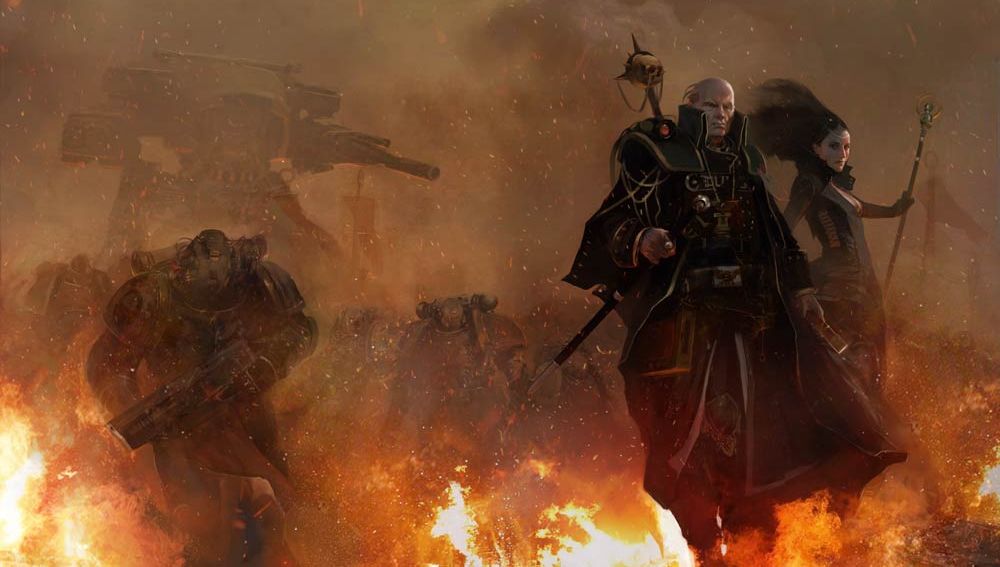
Best 40K series
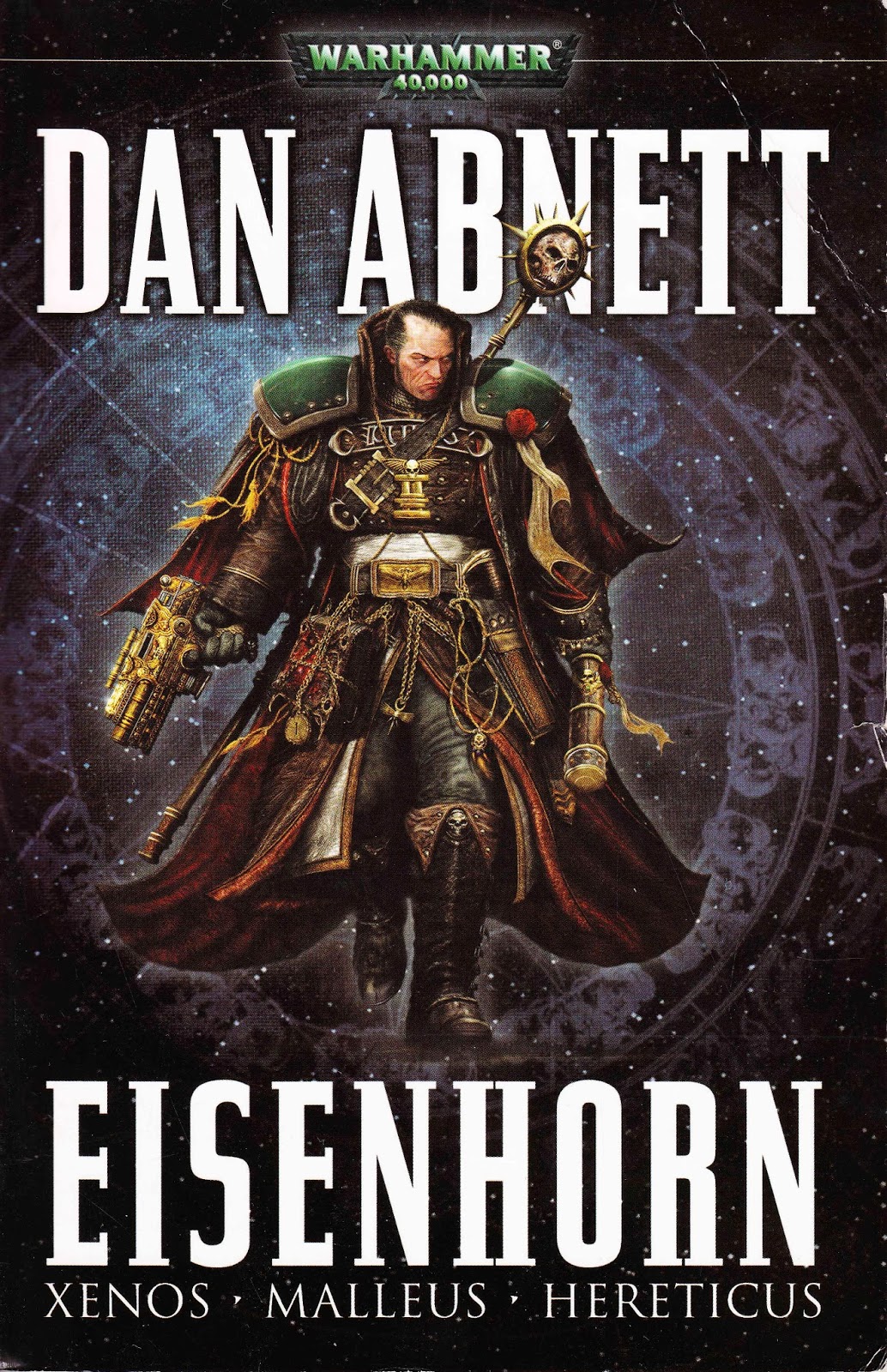
The Eisenhorn books turn 40K into hardboiled fiction, with Inquisitor Eisenhorn atomic number 3 a Raymond Chandler investigator narrating in first-somebody. His investigations into Chaos frequently lead to struggle with the machinery of the Empire He's unlikely to protect, which plays well with the genre's misanthropic view of authority. Eisenhorn's handwritten by Dan Abnett, one of the better 40K writers but unmatchable with a impuissance—endings that finger hurried. The third book in the Eisenhorn trilogy suffers from this, but waiting along the other side is a sequel trilogy called Ravenor. Ravenor jumps literary genre and protagonist, following an inquisitor World Health Organization works with a team of badass specialists. Suddenly it's to a greater extent like the X-Hands than The Mountainous Sleep, a variety that revitalizes the series and makes it worthy sticking out with.
For classic military sf, Gaunt's Ghosts is the series you want. Colonel-Commissar Ibram Gaunt is an unusually compassionate officer, consecrated to keeping alive a regiment who are the only survivors of a dead world. Unfortunately for them, the war engine of the Empire is full of glory hounds and bastards happy to throw away thousands of lives to go by a deep full-face half a mile. Patc the enemies faced by the Ghosts are terrible, Gaunt struggles only as much against the orders he's given.
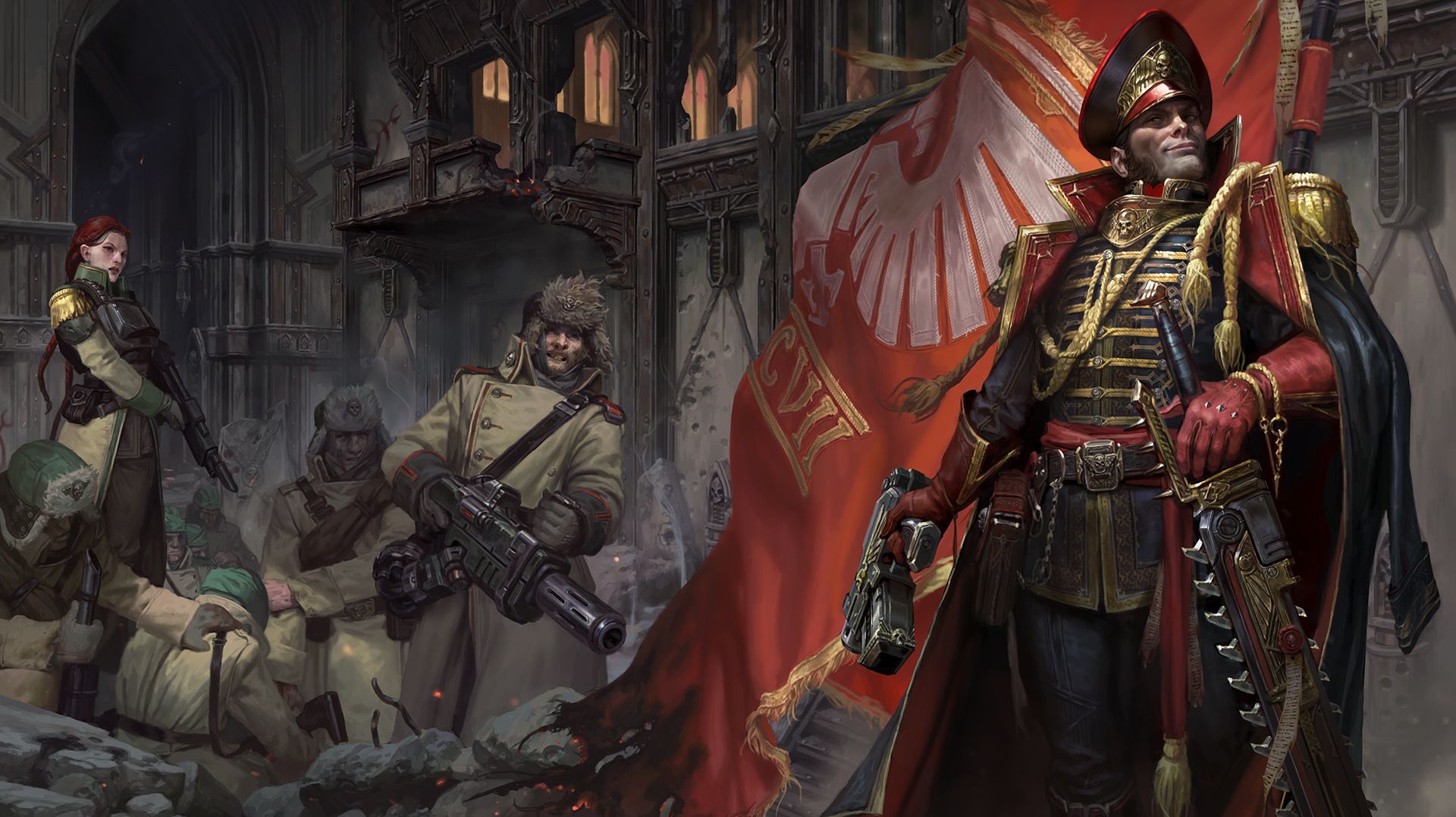
Ciaphas Cain is another series about an unusual commissar, only what makes Cain different is that helium's a liar and fraud. Cain schemes his way out of responsibilities and danger, and ends up taking credit for all triumph, attended by a filthy sidekick named Ferik Jurgen who plays Baldric to his BlackAdder. The Ciaphas Cain books are more comedic than most 40K fiction—if Gaunt's Ghosts takes Bernard Cornwell's Sharpe stories and moves them from Battle of Waterloo to Warhammer, the Ciaphas Cain books are George MacDonald Fraser's Flashman Papers shifted to the 41st millennium.
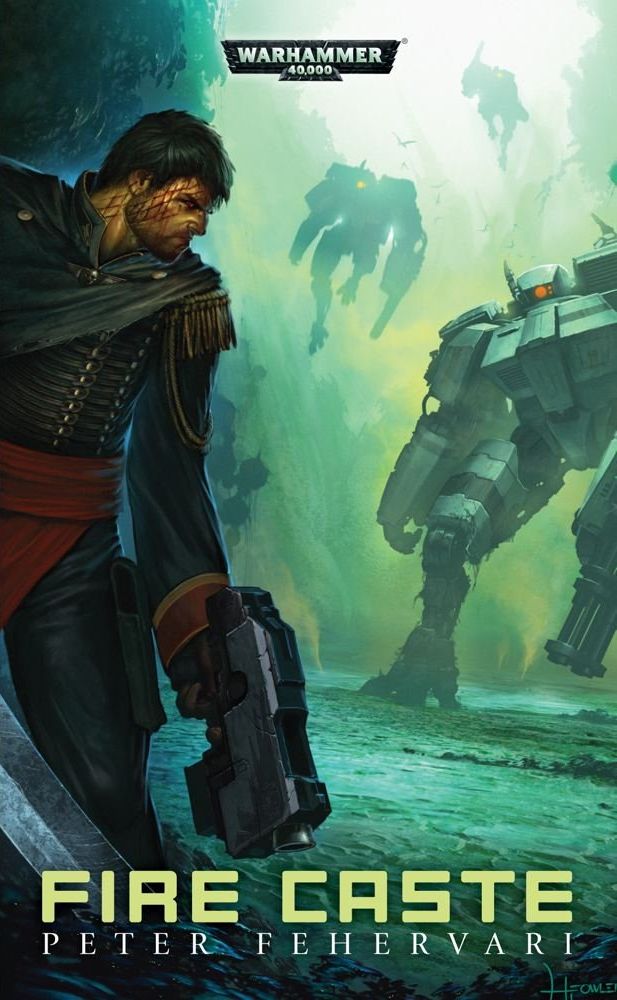
Then there's the Dark Whorl, which International Relations and Security Network't a positive series, merely a name for St. Peter the Apostl Fehervari's 40K stories, connected by an esoteric tangle of recurring characters, places, and themes. Get down with Fire Caste, which follows an Royal Safeguard regiment called the Arkan Confederates who walked right out of a western and have names wish "Kletus Modine". They get together an endless state of war against the tau on a satellite covered in plant life hobo camp and a maze of rivers named the Dolorosa Coil. It's a "war is hell" level, Apocalypse Now if it was about cowboys versus aliens who jade Zanzibar copal battlesuits. The curtal story Vanguard is its epilogue, and from there anything with the call Simon Peter Fehervari thereon leads further into the Coil.
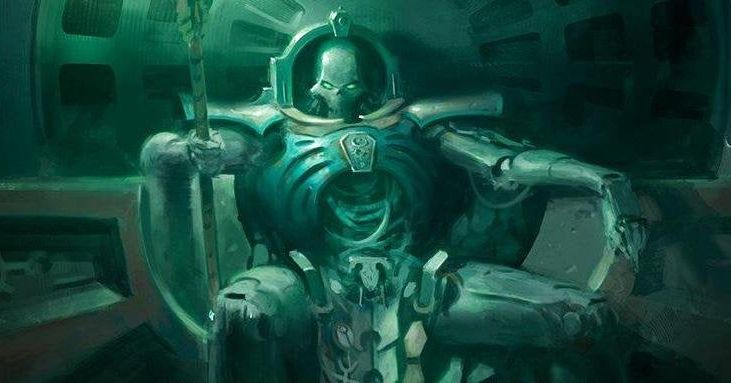
Best standalone 40K novels
For a non-human view, try The Infinite and the Divine. It's about the necrons, counterfeit-Egyptian cybermen WHO were tricked out of their souls and into immortal motorcar bodies, and have been mad about IT for millennia. Trazyn the Incalculable is so obsessed with the past he fills a museum with warriors in stasis like life-sized collections of Warhammer miniatures, while his match Orikan the Divine can see the future and even alter IT, which he uses for reasons as small-minded equally jury-meddling. One of the funnier 40K books, it extrapolates the estimate of beings who essentially cannot give-up the ghost to ideate an entire species filling infinity with pointless unmatched-upmanship—as well as plays that take literal decades to perform and nobody enjoys.
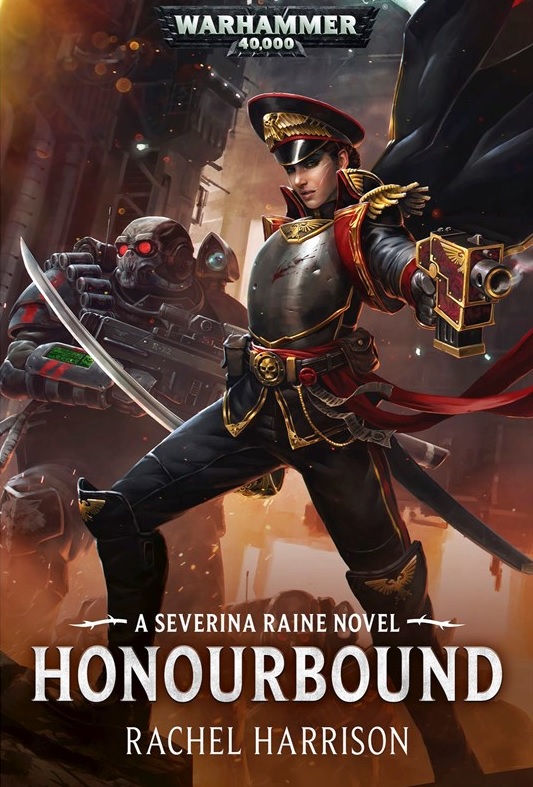
Honourbound is some other Good Book about a commissar, only where Emaciated and Cain are atypical, one of the first things Severina Raine does in Honourbound is execute unmatchable of her own soldiers for cowardliness. Which is precisely what commissars are meant to make out. And yet, Raine comes off sympathetic, as do the soldiers who serve under her—tied though one's an addict who does some direful things and the others are so superstitious they shun the psyker involved to their team and ring her a "bewitch". Written in present-unrelaxed, Honourbound constantly pauses to dive into the thoughts of its ensemble cast, peppering the battles and intrigue with psychological insight that makes information technology as much role study as state of war taradiddle.
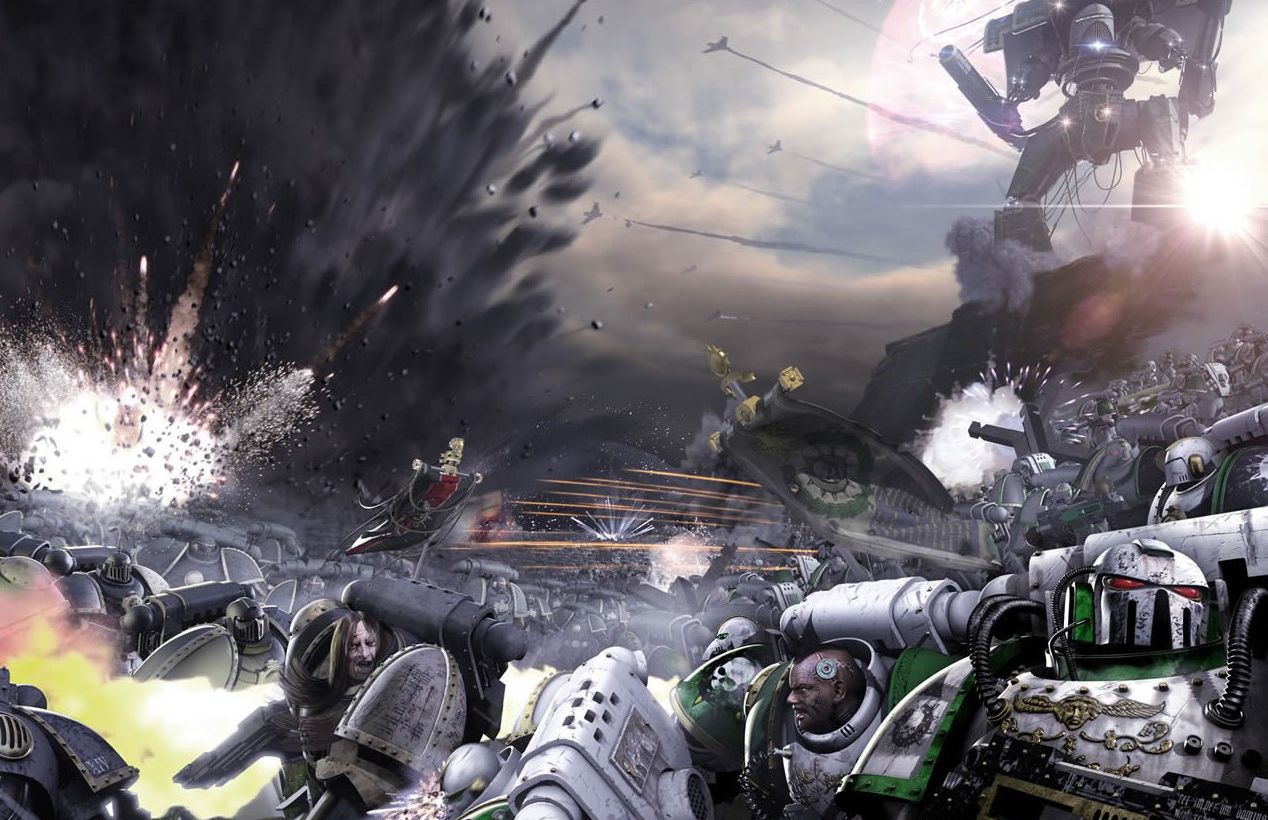
Best Horus Heresy books
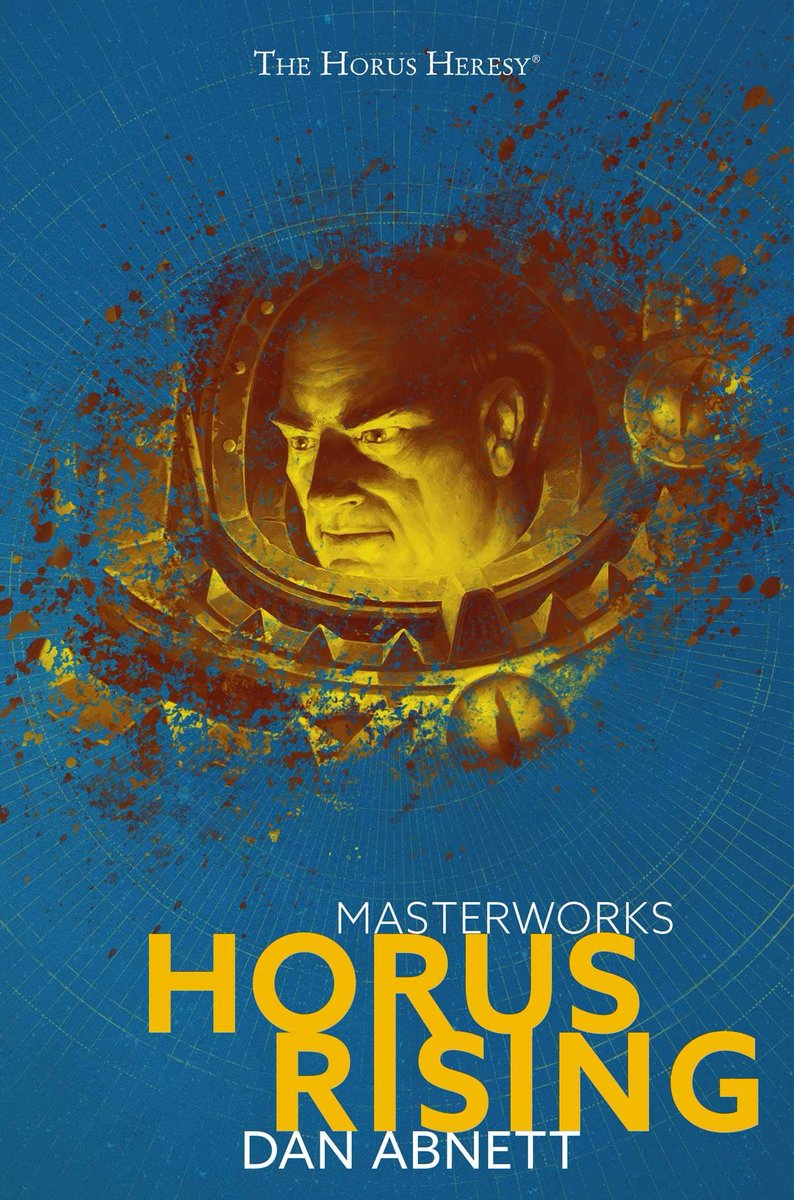
The Horus Heresy line jumps back 10,000 years to a formative point in the setting's chronicle. Like most prequels they're amend experienced after the stories they're set before, full of foreshadowing that pays off if you know what's approach. The first three are the essential ones: Horus Rising, Dishonorable Gods, and Galaxy in Flames. In these, the view is split between superhuman blank marines and unremarkable remembrancers—artists, photographers, poets, and journalists brought along to commemorate their Bang-up Drive for posterity, who instead witness its fall into corruption and betrayal. It's a depend at the Imperium before scrupulous dogma dominated it, imperfect merely far from "the cruelest and most bloody regime thinkable" it becomes.
Unluckily the Horus Heresy books were a victim of their own succeeder, selling well enough that at first modest plans were expanded into a delineate that numbers over 50 books, brimming of padding and stories that bounce back in the timeline to fill gaps no one cares about. A scarce exception is Horde, a spy novel that uses however another of 40K's grand pointless wars as a backdrop. Other than that, the prizewinning way to approach the later Heresy books is to cherry-pick ones that focus on factions operating room characters you'Re already interested in and skip the rest.
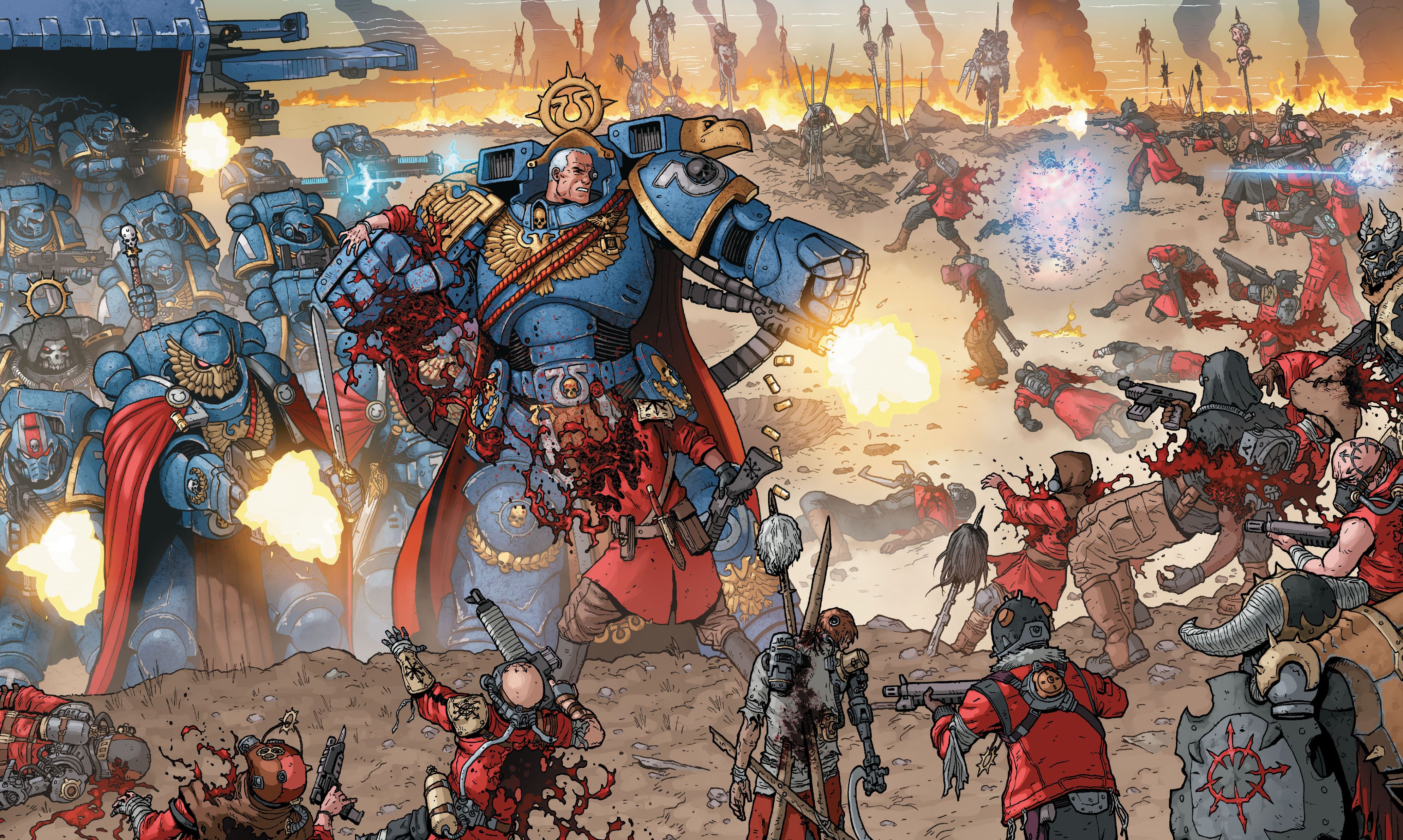
Best 40K comics
When Marvel Comics got the 40K licence the ensue was both a congealed introduction to the setting for comics readers, and an enjoyable blast of the old megaviolence. Marneus Calgar is a Little Phoeb-issue serial publication about how the chapter overcome of the Ultramarines introductory became a space leatherneck, told in flashback as a technical school-adept tries to discuss the finer points of budgeting ammunition with him. This is constantly interrupted by battles with entire armies of heretics, pages of impaled bodies and blood. Which is great.
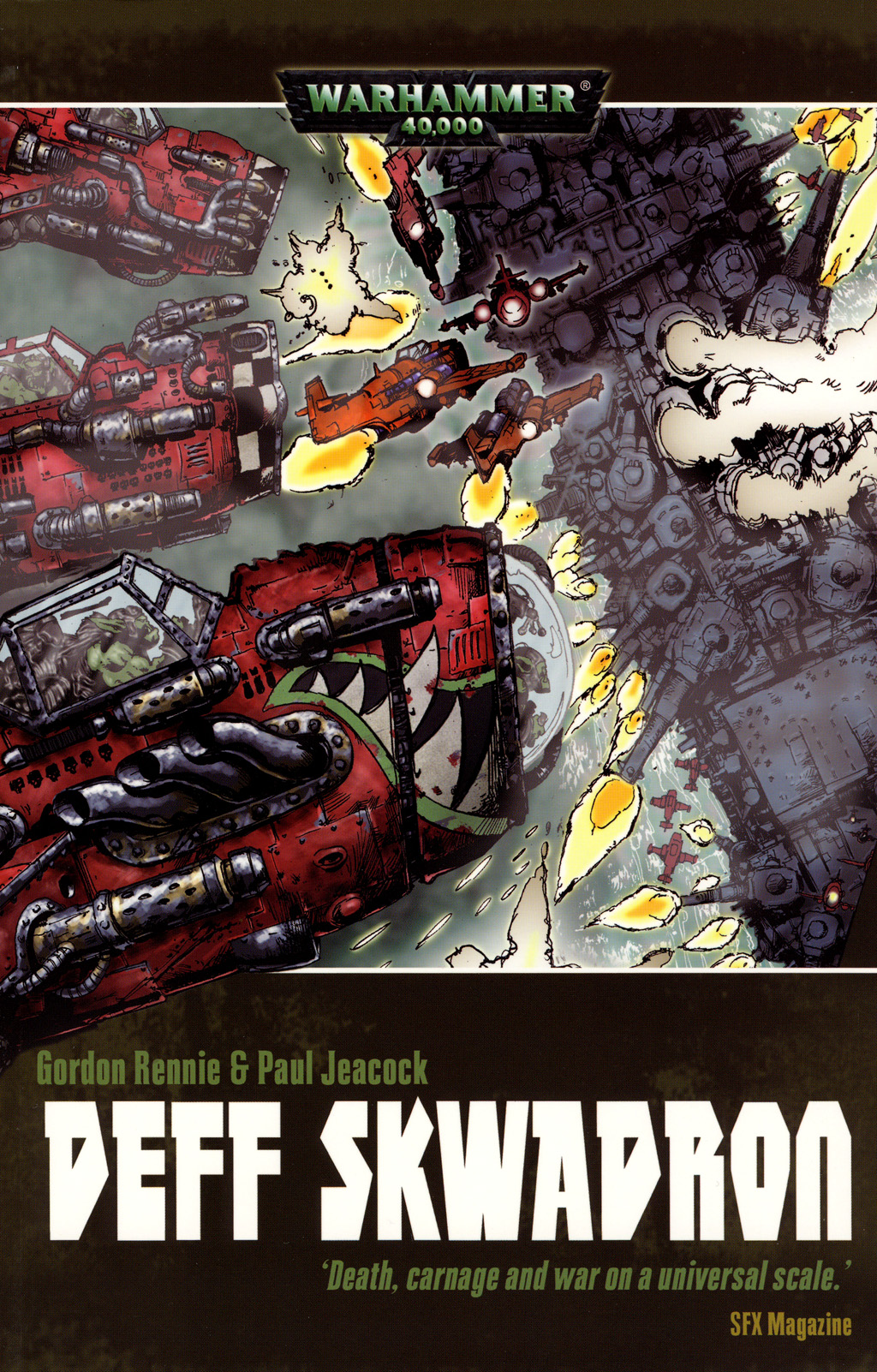
The opposite 40K comic Worth reading leans into drollery even harder. Deff Skwadron is about ork fighter pilots in junker planes with three speeds: stop, imperviable, and "Waaagh!" They act like The Dkm Busters on a foray into, if you replaced tactics with pure brutality and a belief that parachutes are for wimps. The dogfights are chaotic, sketchy swirls of ink where engine parts and limbs fly through the beam like confetti at a hymeneals. Deff Skwadron is an aged one and can be hard to find in print, but worth it.
Further reading
Warhammer Phantasy books to register later on you play Vermintide
Every Warhammer 40,000 game ranked
Major events in the Warhammer 40,000 timeline
The best Warhammer 40K starter set guide, and beginner tips
Warhammer 40,000: Dawn of Warfare deserves a remaster
Source: https://www.pcgamer.com/best-40k-books-novels/
Posted by: stinsonowareasti.blogspot.com



0 Response to "Best 40K books | PC Gamer - stinsonowareasti"
Post a Comment